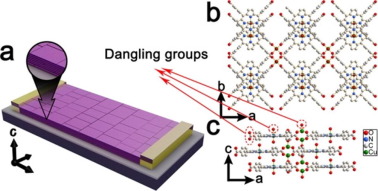

Over the past decades, research on proton-conductive metal-organic frameworks (MOFs) has rapidly accelerated due to the importance of energy for modern society. This review mainly focuses on some representative proton-conductive MOFs reported recently, with related discussions on the underlying proton transportation mechanisms. In the first section, we give a brief introduction to the background of proton-conductive MOFs. In the following second section, a summarization on the widely used experimental characterization techniques as well as the well-established computational methods for exploring the proton transportation mechanism is given. In the third section, some representative studies in this field are reviewed from the aspect that how to tune the proton conductivity of MOFs, with emphasis on the following factors: the impact of framework and guest molecules/ions; the modification with functionalized groups and the tuning of Brønsted acidity; the influence of phase transition, defects, and amorphization. Finally, the conclusion and perspective are presented regarding the modulation on the proton conductivity of MOFs and the rational design of novel proton-conductive MOFs.